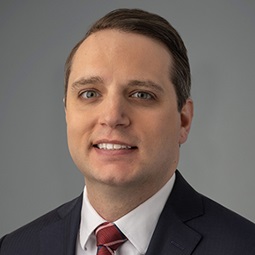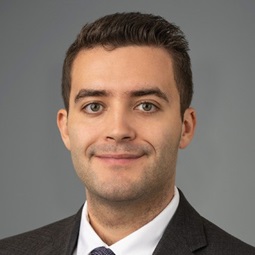Contributed by Brian Wells
The recent decision by the United States District Court for the District of Delaware in Imperial Tobacco Canada Ltd. v. The Flintkote Co. (In re Flintkote.) shines a light on the sometimes murky area of bankruptcy appeals by clarifying the standard a district court will use to determine whether to grant leave to appeal an interlocutory order from a bankruptcy court.
The decision addresses an appeal by Imperial Tobacco Canada Limited of a portion of a decision issued by Judge Fitzgerald of the United States Bankruptcy Court for the District of Delaware, which granted in part and denied in part Imperial’s motion for leave to file a late proof of claim. The district court noted that, under 28 U.S.C. § 158(a)(3), appeals of interlocutory orders may only be made with leave of the court. Finding the appeal interlocutory, the court adopted the three-part test found in 28 U.S.C. § 1292(b) and used by the Third Circuit to determine whether to grant leave to bring an interlocutory appeal from a district court order. The district court ultimately refused to grant leave to appeal, finding that 1) there was no controlling issue of law to be determined; 2) there were not substantial grounds for differences of opinion regarding the issue being appealed; and 3) appellate review would not materially advance the termination of the litigation between the parties.
Background
The Flintkote Company’s origins trace back to the turn of the 20th century, when it was founded as a manufacturer of roofing materials. In the 1930’s, amid rapid growth, Flintkote expanded into several new product lines, including asbestos-based construction materials. The company prospered, and by 1963, operated over 140 plants world-wide. Flintkote’s fortunes, however, turned with the rise of asbestos-litigation. By the 1980’s, asbestos claims were booming, and the company’s fortunes were in a steep decline. Flintkote’s later years were largely intertwined with Imperial, which purchased Flintkote in 1986. Over the following several years, Imperial removed Flintkote’s assets, spun off its operating divisions, and directed it to issue dividends totaling $525.2 million. Imperial also allegedly took a number of steps to try to insulate itself from Flintkote’s liabilities, but nevertheless kept the organization running with a skeleton crew (comprised of Imperial employees and professionals.) In 2004, still saddled with over 150,000 claims, Flintkote filed for chapter 11 protection in the United States Bankruptcy Court for the District of Delaware, with the aim of creating a “524(g) trust” to handle the remaining and future asbestos claims asserted against it. The debtor’s bankruptcy trustee later brought multiple actions against Imperial, including an alter ego action (arguing, essentially, that Imperial was responsible for Flintkote’s asbestos liabilities because it operated the post-spin-off Flintkote as an alter ego). Imperial contested these actions, and the litigation and bankruptcy case continued for years.
Imperial believed that, if it lost on the alter ego action, it would be entitled to indemnification from Flintkote. Notwithstanding this, Imperial chose not to file a proof of claim in Flintkote’s bankruptcy for its potential future indemnification claim. According to Imperial, under the then-controlling Frenville accrual-test, it would have no right to indemnity until the claim accrued under state law, which would only happen once it was found to be Flintkote’s alter ego. Because, in Imperial’s view, its indemnity claim had not accrued under state law, Imperial argued, there would be no “claim” as defined by section 101(5) of the Bankruptcy Code. Despite Judge Fitzgerald’s repeated rejection of this legal argument and urging to Imperial to file a proof of claim, Imperial did not file one.
The bankruptcy process marched forward, the bar dates came and passed, and, years later, on the eve of confirmation of the debtor’s 524(g) plan, Imperial sought leave to file a proof of claim for the indemnity claim and two environmental claims. Imperial argued that the Third Circuit’s then-recent Grossman’s decision broadened the definition of a “claim” previously established under Frenville, so that Imperial now had a claim that it could file. More specifically, Imperial argued that Grossman’s “fundamentally redefined what constitutes a ‘claim’ under the Bankruptcy Code” by determining that a contingent cause of action, without an existing payment obligation, could be a claim within the meaning of section 101(5).
Generally, late-filed claims will be allowed with a showing of excusable neglect, as determined under the standards established by the Supreme Court in Pioneer. Although the bankruptcy court found excusable neglect and permitted filing of the two environmental claims, it did not allow Imperial to file the indemnification claim. The court noted that it had already rejected the theory that Frenville precluded filing of a proof of claim for indemnification, that it had already urged Imperial to file its claim, and that allowing the claim to be filed one week before confirmation would prejudice the debtors.
Imperial appealed on the narrow issue of whether, given the change in the law after Grossman’s, the bankruptcy court erred in denying the motion to file a late proof of claim for the potential alter ego indemnification. The appeal was brought under 28 U.S.C. § 158(a)(1), governing appeals of final orders, on the theory that the order was final as to its ability to file a late claim for indemnification because no further action by the court was necessary for that claim. Flintkote countered that the order, both denying and granting the motion in part, was not final because the bankruptcy court had allowed Imperial to file two of the three claims and the claims were not fully litigated. Further, Flintkote argued that the legal issues raised in the appeal were so intertwined with Imperial’s outstanding confirmation objections that the order was not final.
The court sided with Flintkote, finding that the appeal was interlocutory for reasons largely quoted from the debtors’ briefs. The court emphasized that the appeal would adjudicate less than all of the related disputes between a creditor and the estate, and would not end the litigation between Imperial and debtors (as two of the claims still had to be litigated.) The court also noted that the legal issue underlying the appeal – the correct interpretation of Grossman’s – was implicated in Imperial’s objection to confirmation.
Determining that the appeal was interlocutory, the court then had to consider whether it would “grant leave to hear the appeal” as required under 28 U.S.C. § 158(a)(3). In deciding whether to grant leave, the district court followed the three-part test from 28 U.S.C. § 1292(b), which governs whether an appeal from a district court’s interlocutory order to a court of appeals is warranted. Under section 1292(b), interlocutory orders are heard only when the order at issue (1) involves a controlling question of law upon which there are (2) substantial grounds for a difference of opinion as to its correctness and which, (3) if appealed immediately, may materially advance the ultimate termination of the litigation. The court also noted that an appeal under section 1292(b) – and, therefore, section 158(a)(3) – is only appropriate where “exceptional circumstances” justify departing from the basic policy of postponing review until after the entry of final judgment.
In applying the section 1292(b) factors, the district court found that Imperial did not present any controlling question of law. Instead, the court observed that Imperial’s appeal involved the bankruptcy court’s fact-intensive determination that Imperial had ample time to raise its claim but failed to do so. Next, the court rejected the argument that there were substantial differences of opinion as to when Imperial’s claim arose, noting that the Pioneer standards indisputably governed the inquiry. (The court did not explain why the dispute over Grossman’s was not relevant to this prong.) Finally, the court found that immediate review would not accelerate the termination of the litigation because it would not decide the allowance or amount of the claim (a claim for attorney’s fees was still pending), it would not eliminate the need for a confirmation hearing, and it would not resolve the precise legal issues Imperial raised in its confirmation objections. The court also noted that there were no exceptional circumstances present and that Imperial would have an opportunity to show that the bankruptcy court was in error if it chooses to appeal a later final judgment of that court.
Flintkote has several key take-aways regarding Delaware law. First, where multiple issues are decided in one order – as was the case where the court granted Imperial leave to file two environmental claims but denied leave to file the indemnification claim – a definitive answer to one issue might not be final where the other issues remain outstanding. In that situation, appeal of the seemingly decided issue will likely only be granted with leave of the court, or upon a later final order. Second, the decision confirmed the standard that will be applied when the district court decides whether to grant leave for an appeal of an interlocutory order of the bankruptcy court, which parallels the standard used by the Third Circuit when deciding whether to grant leave to an interlocutory appeal from a district court order. Third, the case clarified the application of that standard to ancillary legal issues. While an appeal, whether interlocutory or final, may raise a genuine legal dispute, where that dispute is ancillary to the legal determination being appealed – just as, for instance, whether Grossman’s changed the parameters of when a “claim” arises was ancillary to the court’s decision of whether Imperial could file a late claim under the Pioneer standards – that legal issue might not affect a court’s decision to grant leave. Imperial waited years to file its proof of claim for indemnification, and when it finally tried to do so, Imperial was told that it was too late. Ironically, when it attempted to obtain a reversal of the bankruptcy court’s interlocutory decision, Imperial learned the hard way that it will now have to . . . wait.
Printed from
Weil Restructuring Blog

|
|
|
Creditor Who Waited to File Late Proof of Claim Learns It Can’t Rush Through the Appeals Process: Delaware District Court Denies Leave for an Interlocutory Appeal
Copyright © 2025 Weil, Gotshal & Manges LLP, All Rights Reserved. The contents of this website may contain attorney advertising under the laws of various states. Prior results do not guarantee a similar outcome. Weil, Gotshal & Manges LLP is headquartered in New York and has office locations in Boston, Brussels, Dallas, Frankfurt, Hong Kong, Houston, London, Los Angeles, Miami, Munich, New York, Paris, San Francisco, Silicon Valley and Washington, D.C.
|












